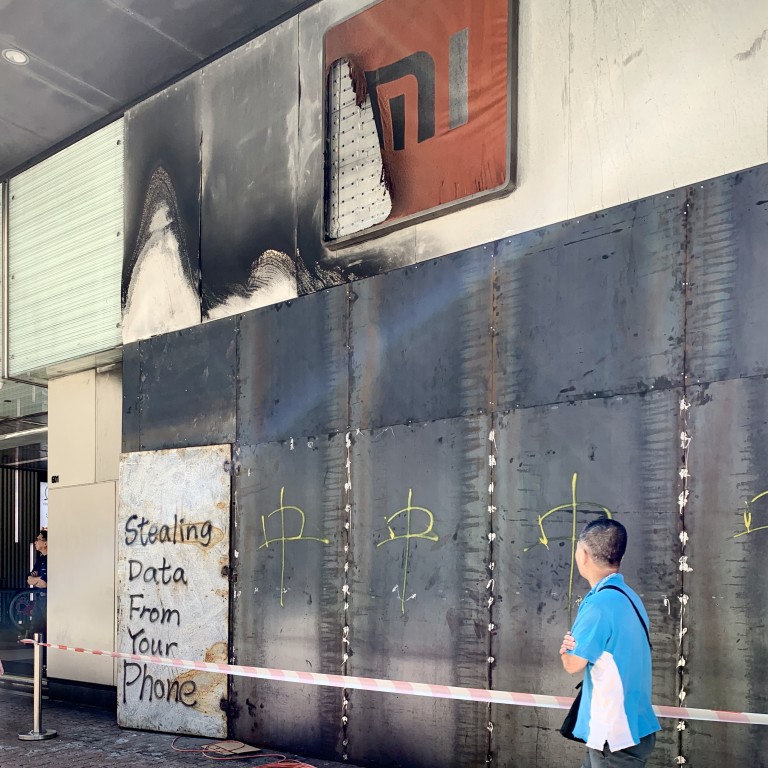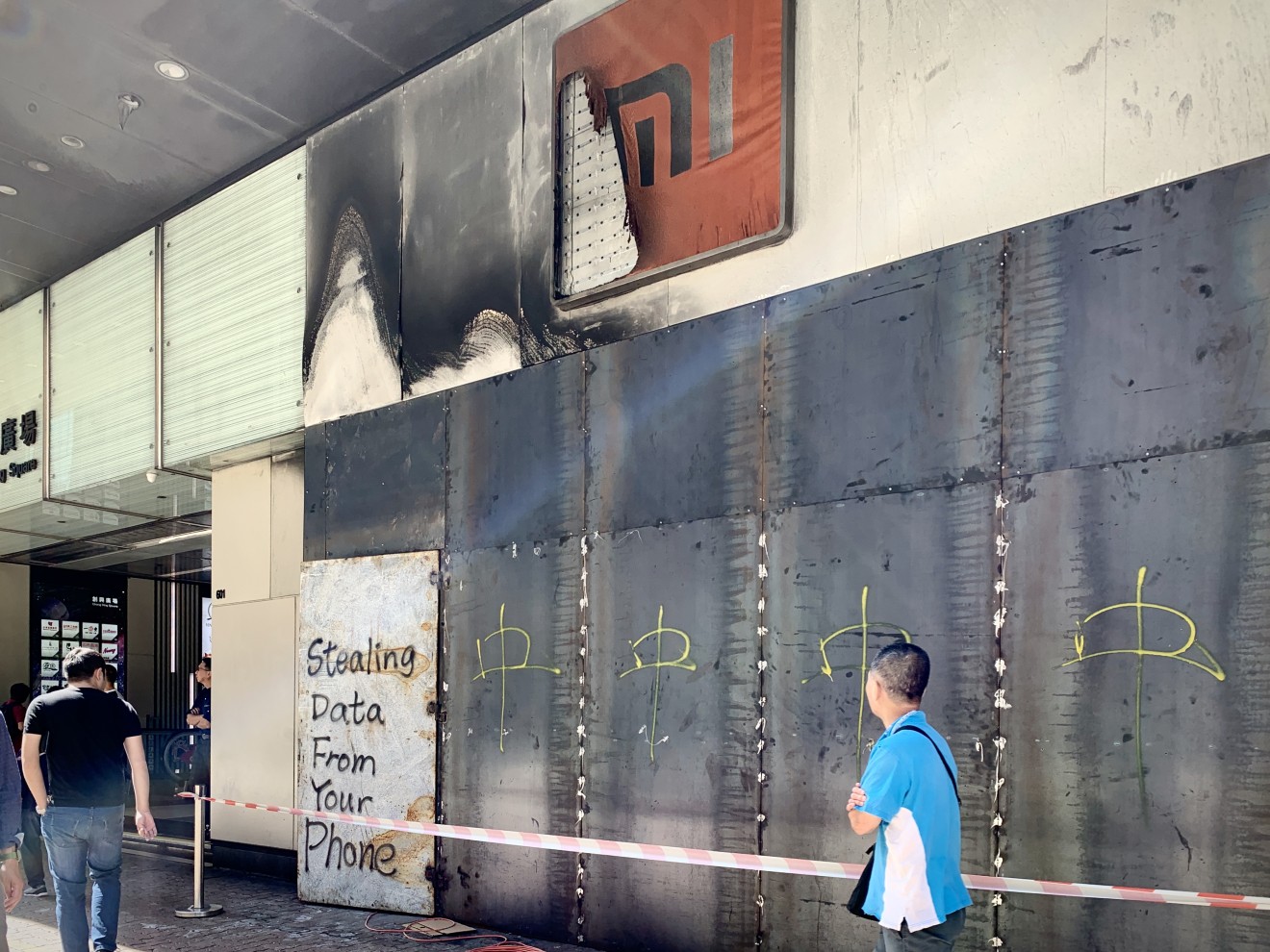
Xiaomi, Huawei and Lenovo stores trashed amid ongoing Hong Kong protests
Protesters are targeting Chinese tech after previously going after brands associated with mainland China or seen as favoring the mainland market
Some of the graffiti takes aim at Xiaomi. One message accuses the smartphone company of “stealing data from your phone.” Another is just the symbol from V for Vendetta, the popular Alan Moore comic about an anarchist hero and its 2006 film adaptation.

As much of Hong Kong shuns Chinese products, some protesters are taking a more blunt approach to showing their disapproval of Chinese tech companies. Huawei and Lenovo have both had locations damaged in the protests. But the extent of the damage to the Xiaomi shop made headlines.
On October 20, protesters trashed Xiaomi’s Mi Home Store in Mong Kok. They also set a fire outside and threw a petrol bomb into the store.
Xiaomi has three Mi Home stores in Hong Kong, where the company’s power banks, smartphones and a range of smart home products are laid out clearly across long tables. The other two Mi Home shops in Causeway Bay and Yuen Long are operating as normal, according to the company.
But the Mong Kok location is the only Xiaomi store on the outside of a mall, facing the street. That makes it an easier target, and it makes the damage all the more conspicuous to passersby.
Xiaomi and Huawei both declined to comment.

A Lenovo shop at the same mall was also damaged. One store employee told us that glass windows were shattered one weekend, but they were promptly repaired. The shop doesn’t plan to put up any extra protection, the employee said, but will instead close during protests and fix any glass that’s broken in the future.
Lenovo declined to comment.
For more insights into China tech, sign up for our tech newsletters, subscribe to our Inside China Tech podcast, and download the comprehensive 2019 China Internet Report. Also roam China Tech City, an award-winning interactive digital map at our sister site Abacus.

